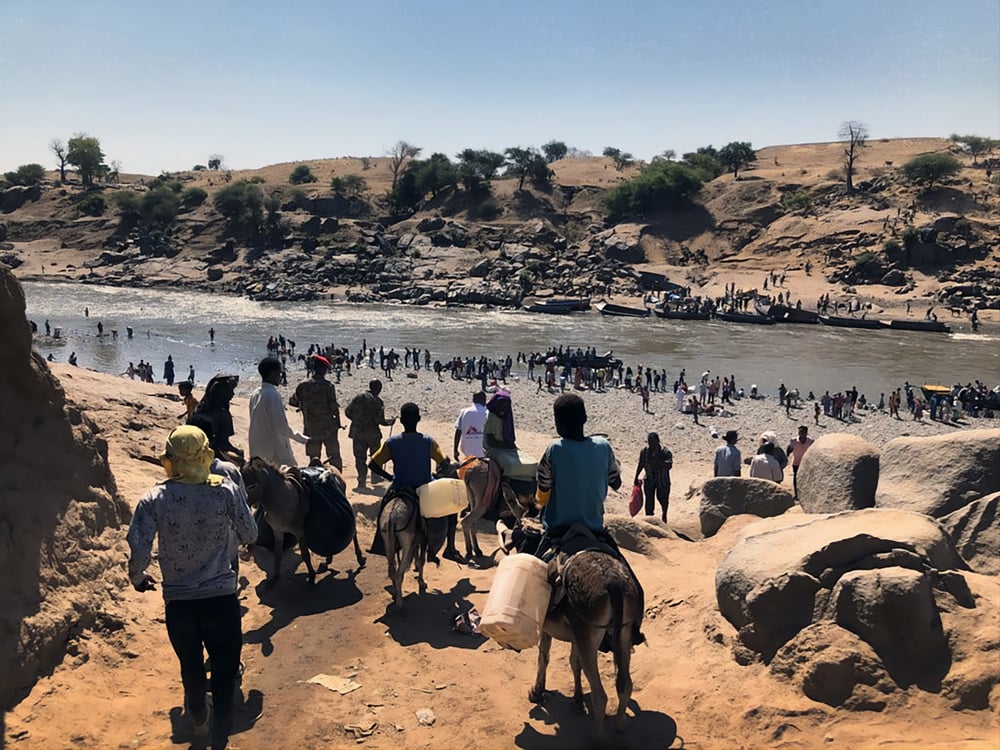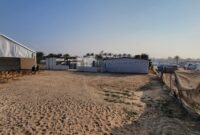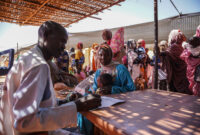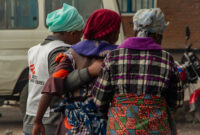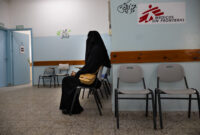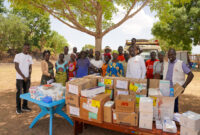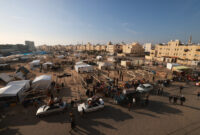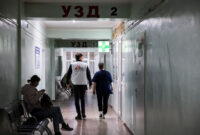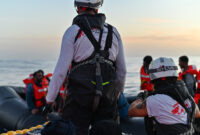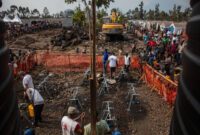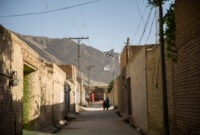Ethiopia Tigray Crisis
Doctors Without Borders/Médecins Sans Frontières (MSF) teams are working on both sides of the Ethiopia and Sudan border. MSF is providing medical treatment and humanitarian assistance to people in refugee camps in Sudan, and to the displaced and host communities within Tigray in Ethiopia.
Before fighting broke out in late 2020, the Tigray region in northern Ethiopia was home to around to 5.5 million people, according to United Nations estimates. This included more than 100,000 internally displaced people and 96,000 refugees, who were already dependent on food assistance.
Since early November 2020, the terrible violence across Tigray has forced people to leave their homes for precarious living situations within Tigray and over the border in Sudan.
What is the Tigray crisis?
In Ethiopia
In Tigray, hundreds of thousands of people have fled their homes but remain in the region. They are trying to find shelter where they can; since the beginning of March 2020, MSF teams have witnessed a massive influx of new arrivals in the towns of Shire, Adwa, Axum, Adigrat and Abyi Adi. The number of different sites where people are staying have multiplied by five in both Shire and Axum over recent weeks, while there are now more than 117,00 people in Adwa alone.
Most have fled with few possessions, many just with the clothes on their backs. Shelter, hygiene services, clean water and especially food are all in short supply. More international assistance has arrived over the past month, but the humanitarian response has been slow and large gaps remain. Aid does not generally reach people outside of the major towns, where people are known to still be hiding.
Access to healthcare is also very limited. MSF teams in Tigray have documented evidence of widespread, targeted attacks on health facilities across the region. Of the 106 facilities assessed between mid-December 2020 and early March 2021, 87 percent were no longer functioning or fully functioning.
In Sudan
As of April 13, 2021, more than 62,500 people have crossed to Sudan as refugees. Nearly 14,000 refugees are in the transit and border area of Hamdayet where shelter, access to food, sanitation and clean drinking water continues to be an issue. Most refugees in Hamdayet, especially the ones without shelter are living throughout the village within the host community. Our teams are present at the border crossings and transit centres in Hamdayet and Hashaba village.
From Hamdayet, people are being slowly relocated to Um Rakuba and Al-Tanideba, the two permanent camps in Gedaref state, southern Sudan.
Three months on and MSF is still worried about the very limited services in the permanent camps, which are located in a very remote part of Sudan, and where many of the humanitarian needs – including shelter, water and food – are not being met.

What is MSF doing?
MSF response in Ethiopia
– MSF is supporting the hospital in Adigrat, which had partially stopped functioning. Our medical teams are running the hospital’s emergency room, as well as the medical, surgical, pediatric and maternity wards, along with providing outpatient care for children under five.
– We have started a program providing mental health consultations and activities.
– MSF is supporting several health centres in the area, where we run mobile clinics; our teams are also trying to reach more health centres in rural areas.
– In the towns of Adwa and Axum, we are providing some of the displaced and local people with basic healthcare, including at some of the sites for displaced people in both areas.
– In Adwa, we are supporting Don Bosco hospital and two health centres with essential supplies, including medicines.
– In Axum, we are supporting the hospital and two health centres with essential supplies, including medicines and food for patients.
– In the town of Abyi Addi, west of Mekele, a team is supporting the health centre with medical assistance, following an upgrade of capacity and services, including emergency and observation rooms and an inpatient department.
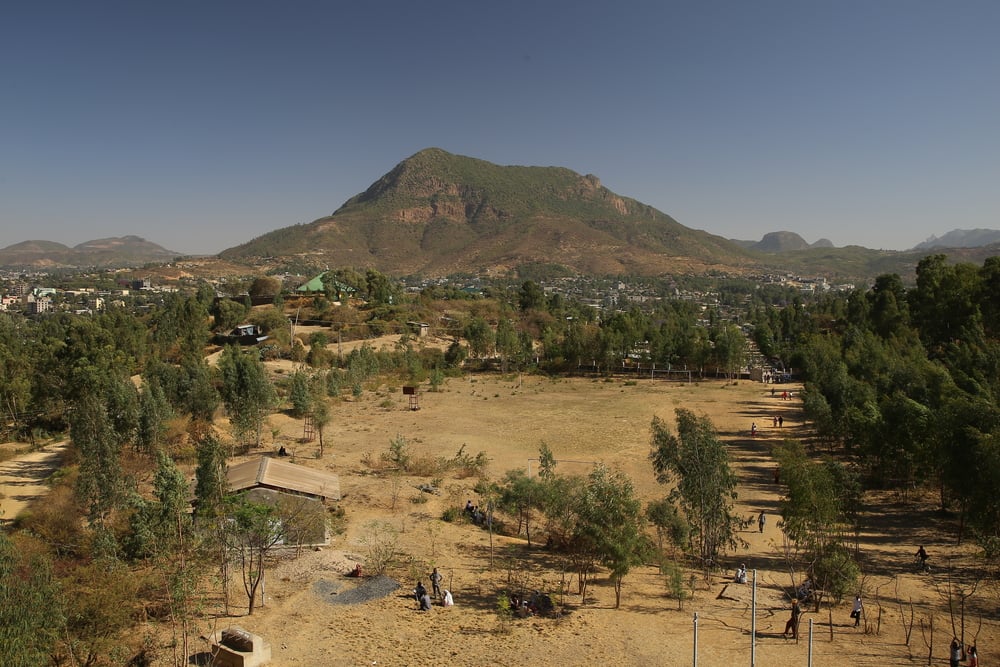
– In Shire, we are supporting the hospital’s paediatric and intensive therapeutic feeding wards (the latter for malnourished children) and have given donations of goods to several health centres in the town.
– We are providing tens of thousands of displaced people in Shire with water and sanitation and relief items, such as cooking and hygiene kits.
– Our teams provide medical and mental healthcare via mobile clinics located at 14 displaced people’s sites in Shire.
– In the town of Sheraro, we are providing support to Sheraro health centre, which now provides services to admitted patients, and facilitate emergency referrals to Shire hospital.
– MSF also started providing support to 3 locations for displaced people in Sheraro.
– Across both Sheraro and Shire, three mobile clinic teams regularly visit seven locations around Shire, and four locations around Sheraro, providing medical care as health posts are not functioning.
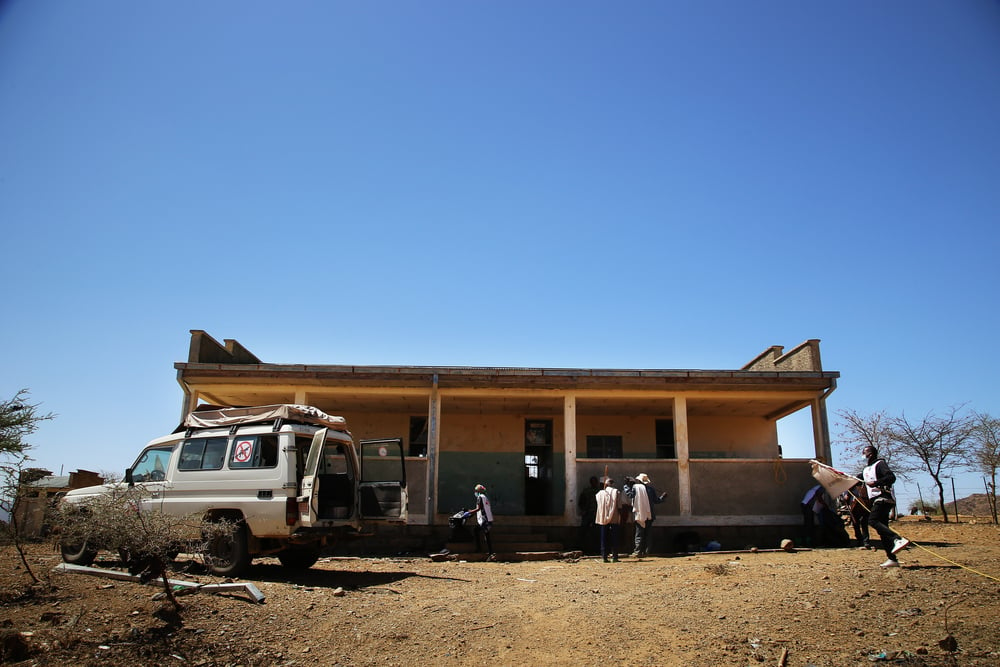
– In Humera, Adi Goshu, Dansha, Adi Remets and in the border area, we are conducting mobile clinics for people left behind without necessary protection and assistance. We also provide donations and support to health facilities in these areas.
– Our teams are providing support to Humera hospital.
– On the border with western Tigray, in Abdurafi (Midre Genet), Amhara region, we continue to support the remaining displaced people in town, and run a health centre to treat snake bites and kala azar.
– MSF teams ran mobile clinics and restarted some services at health centres in the towns of Hiwane and Adi Keyih, alongside staff from the Ministry of Health, until mid-January, 2021.
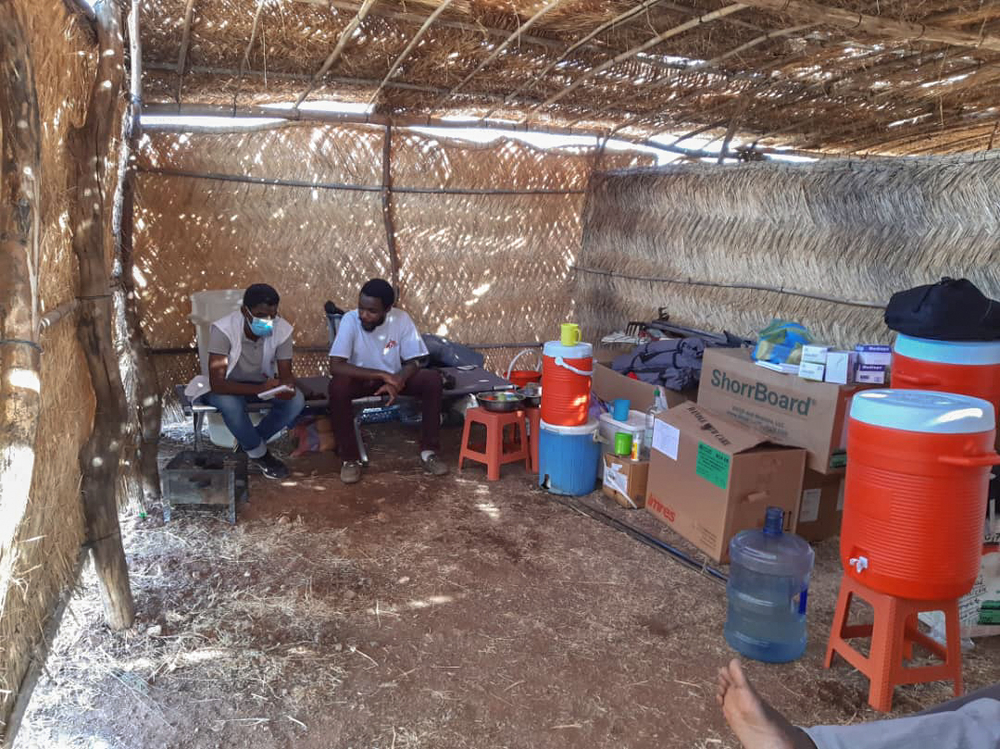
MSF response in Sudan
– At the border crossing in Hamdayet, our teams provide medical care, health promotion, mental health consultations, nutrition screening and water and sanitation services to people who have crossed the border.
– At the camp in Hashaba, we provide medical consultations, including support for reproductive health and health promotion activities.
– MSF runs a clinic where we offer medical consultations, screen people for signs of malnutrition, and help patients with non-communicable diseases, such as diabetes. We also support reproductive health, for pregnant women and new mothers, and provide mental health consultations.
– We run a mobile clinic on weekly basis in Um Rakuba village to provide medical care to the Amhara group who are staying in the village. The most dominant health issues treated by MSF are bloody diarrhea, urinary tract infections as well as some cases of malaria.
– MSF teams are in the process of building a field hospital with 30 beds and 10 additional isolation beds for transmissible diseases.
– We screen arrivals at the reception area of the camp for their health needs, providing treatment as needed.
– We are providing water and sanitation, basic healthcare, vaccinations, malnutrition screening and are supporting maternity services.
– MSF is currently building an inpatient clinic, which will have a ward each for women, men and children. The clinic will treat severely malnourished children and a maternity department.
– Medical services provided in the camp are for both refugees and the host community.
